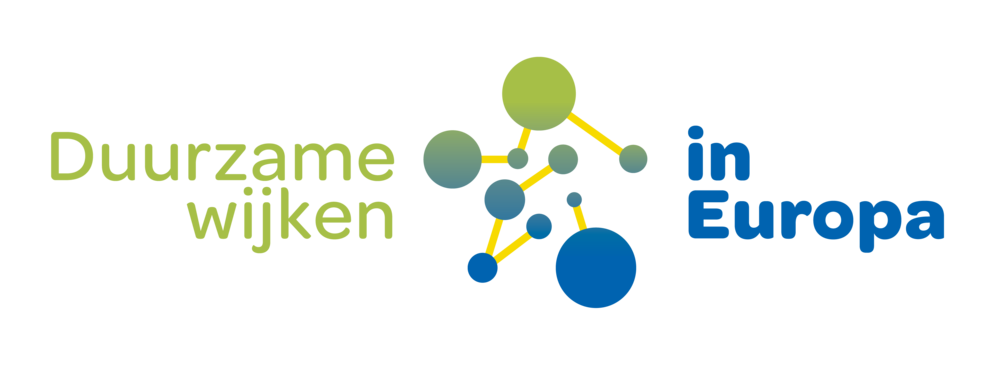“Technical innovation makes the energy transition practical and affordable”
Interview with Renée Heller, professor of Energy and Innovation
The Netherlands sets the bar high in its sustainability policy, but in practice government policy acts as a brake. Positive Energy Districts do set the bar high, according to Professor of Energy and Innovation at the Amsterdam University of Applied Sciences (AUAS), Renée Heller. AUAS is also the host of the PED conference, where Heller will be a keynote speaker on 23 June. “There are too few techies, sociologists and economists walking around with an understanding of other people’s expertise.”
Heller has been working on sustainability since the 1990s, when she studied physics. She worked on materials science research for solar cells – “The main question at the time was how to get solar cells more efficient and cheaper” – and for hydrogen storage – “We investigated materials that can be used for hydrogen storage without high pressure.”
Why did you decide to work for a sustainability consultancy?
“I was working on CO₂ reduction because I thought it was important. The pure technique was interesting, but I also wanted to work on its application.”
What have you learned from that time as a consultant?
“Two big lessons. To start with, realism about the speed with which you can deploy sustainable technology. We did a project at a horticulturist, in which we briefly used his greenhouses as one large solar collector. As a technician, I had a tendency of becoming cynical about achieving the goals; I saw that we could do it technically, but the greenhouse horticulture sector did not just go along with everything. I had to learn to understand that; the considerations of an entrepreneur, and how to make this interesting in business management.”
And the second big lesson?
“The great value of interdisciplinary working. The horticultural project also involved a lot of tinkering, coming up with solutions for practical problems. Sometimes we got stuck. It then worked well to have people from a different background look at it all over again. As frustrating as it may be for me – when you’re tinkering for so long you don’t want to go all the way back to the drawing board. But it did work. Application issues are not purely technical issues. Not purely economic either. The architecture matters. The orientation of a building matters, so urban design. The behavior of people using a building or technology.”
“More than ever we see how fossil fuels are a means of power” – Renée Heller
And now you pass on those lessons as a lecturer in Energy and Innovation. In your lecturer speech, you call for the bar to be set high in the energy transition. Why?
“The main reason, of course, is to combat climate change. At the same time, you also see other reasons emerging. The problems for Groningen residents caused by gas extraction there. And now recently the geopolitical reality, through which we see more than ever how fossil energy sources are a means of power. And the consequences that this has for the affordability of energy – and therefore its accessibility for people with low incomes.”
Are we setting the bar high for sustainability in the Netherlands?
“Policy wise, yes. But not in terms of packing. You would hope that the low-hanging fruit would have already been picked, but even there we are lagging behind other countries. And it takes more than just the low-hanging fruit.”
You talk about the Trias Energetica 3.0 as an approach to raising the bar. What is that?
“For a long time, there was the Trias Energetica; the idea that you must do three things for the energy transition: first save energy, then generate sustainably and then make fossil energy more efficient. We no longer want the latter. A new opportunity has taken its place: energy exchange and storage.”
You are a speaker at the PED conference in Amsterdam on 23 June. Are you going to focus mainly on technical issues?
“Yes, but as an applied technique. Technical innovation makes the energy transition practical and affordable. At the Amsterdam University of Applied Sciences, we now train young people to approach innovation in an interdisciplinary way. Because it is an inhibiting factor that there are too few people around who understand the technology and the administrative aspect and how subsidies work and how residents can be involved. Not everything in detail, but understanding other people’s expertise is very important."
What is your role in the European Positive Energy Districts research project Atelier?
Through Atelier, we are involved in all kinds of projects in Amsterdam. Our role is to investigate how we can monitor projects and ensure that successes can be copied and scaled up. It also provides many great places for students to learn to work on innovation in an interdisciplinary way. And as far as I’m concerned, PED is an excellent example of setting the bar high innovatively.”
About Renée
Dr Renée Heller has been a professor of Energy and Innovation within the Faculty of Technology and the Urban Technology research program of the Hogeschool van Amsterdam since 2020. Before that, she was a senior lecturer in Sustainable Energy Systems. After her studies in Physics and General Arts, she worked at an international consultancy for energy saving and sustainable energy, Ecofys. Heller is a member of the Scientific Advisory Board of Milieu Centraal and active in the LEVE and Urban Energy lecturer platforms.
Renée Heller’s inaugural lecture, delivered on February 8, 2022, elaborates on the themes from this interview.
